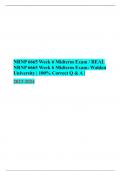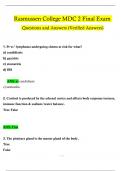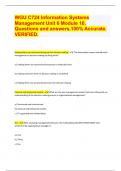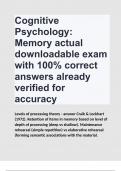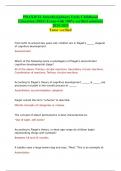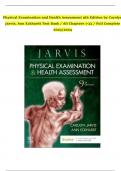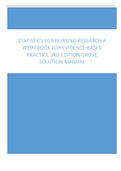Tentamen (uitwerkingen)
NRNP 6665 Week 6 Midterm Exam / REAL NRNP 6665 Week 6 Midterm Exam: Walden University | 100% Correct Q & A
- Vak
- Instelling
NRNP 6665 Week 6 Midterm Exam / REAL NRNP 6665 Week 6 Midterm Exam: Walden University | 100% Correct Q & A
[Meer zien]
